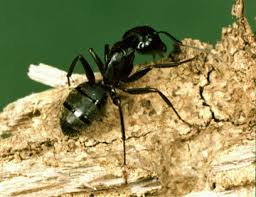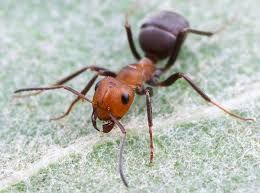How Long Can Ants Survive In Water? The Truth About Flooding Ant Hills
Can Ants Survive in Water? The Truth About Flooding Ant Hills By Horizon Pest Control If you’ve ever battled persistent ant hills in your backyard,
Ever wondered why there are so many ants crawling in your kitchen? And, why they are so different from each other? Most are even confused about the different types of ants they see and confuse whether it is a regular ant or a carpenter ant. Ants regardless of its species can still be disturbing. Well, not as disturbing as termites or as foul looking as cockroaches, but they can still bring great damage and embarrassment to a home especially if they become a permanent settler.
Before even making steps on eradicating these ants, better identify the type of ant you wish to get rid of first. In North America, black ants and carpenter ants are both quite common. The black ant, however, is more commonly found in areas such as in Europe, Asia, and parts of North America. So how would you know if the ant that you see are just nuisance ants or if it is the more notorious carpenter ants?
They are commonly the black ants. The worker ants are up to .2 inches and the queen is up to .4 inches in length. They usually have one queen per colony and the size of the colony is 4,000 to 7,000 workers. However, they can also contain 15,000 workers if their circumstances permit them. They commonly nest in soil such as in lawns, under paving slabs, or at the base of walls, but they do not usually make a nest in a house. They also form large, low-profile earthen mounds in the yard. For them to get their food, they will travel long distances in search for them, thus we commonly find them in our kitchen.
There are approximately 10 species of carpenter ants and they vary in size and color. They are blackish in color and are usually large with ¼ to ½ inch in size. There are also some carpenter ants that are reddish-orange or reddish-orange and black. These ants can bring a lot of trouble especially when they forage indoors in search for food and water. They may not sting when threatened because they do not have stingers, but they can still bite. Their very sharp mandibles, which are used to excavate wood, can also be used when they defend themselves. They will use this by grasping the attacker with their mandibles, then spraying formic acid from the end of their abdomens into the wound.

These carpenter ants can also be destructive since they like to nest in woods. They will damage wood by hollowing it out for a nest. Unlike termites, they will excavate galleries that have a smooth, sandpapered appearance. Your home may have signs of carpenter ants nesting if you find shredded fragments of wood that is the same with coarse sawdust or wood splinters are ejected from the galleries. This is together with some dead ants and bits of other insects that were eaten by the ants.
It is necessary to be able to distinguish the difference between regular ants and carpenter ants since they may closely resemble in size, color and in many of their characteristics. For instance, a relatively large black ant, which is the Allegheny mound ant that comes from the Formica species, is reddish-orange and black that resembles other carpenter ants. Carpenter ants have an evenly rounded thorax, which has its body segment just after the head. The Formica species have a thorax that in profile looks like ridged or uneven.

Use bait such as ant killing granules sprinkles around the mound to control the colony without affecting other organisms. You can also drench carbaryl, diaszinon or chlorphyrifos on the mound.
The best way to control carpenter ants is to find and treat the nest directly since insecticidal baits are not that effective against them. Once the nest is located you can use boric acid in a ready-to-use “puffer” or insecticides and treat the affected areas. You can also call a professional to effectively control ants since they have a different effective approach that can eliminate them easily.
Horizon Pest Control offers effective and affordable ant control services. To get help with your existing ant problem or to learn more about our treatment programs, visit Residential Pest Control.
Can Ants Survive in Water? The Truth About Flooding Ant Hills By Horizon Pest Control If you’ve ever battled persistent ant hills in your backyard,
Asian Needle Ants: What New Jersey Homeowners Need to Know About This Invasive Threat By Horizon Pest Control With warmer weather comes the usual uptick
How to Get Rid of Ants Naturally: Easy DIY Methods That Work By Horizon Pest Control Ants are some of the most persistent and